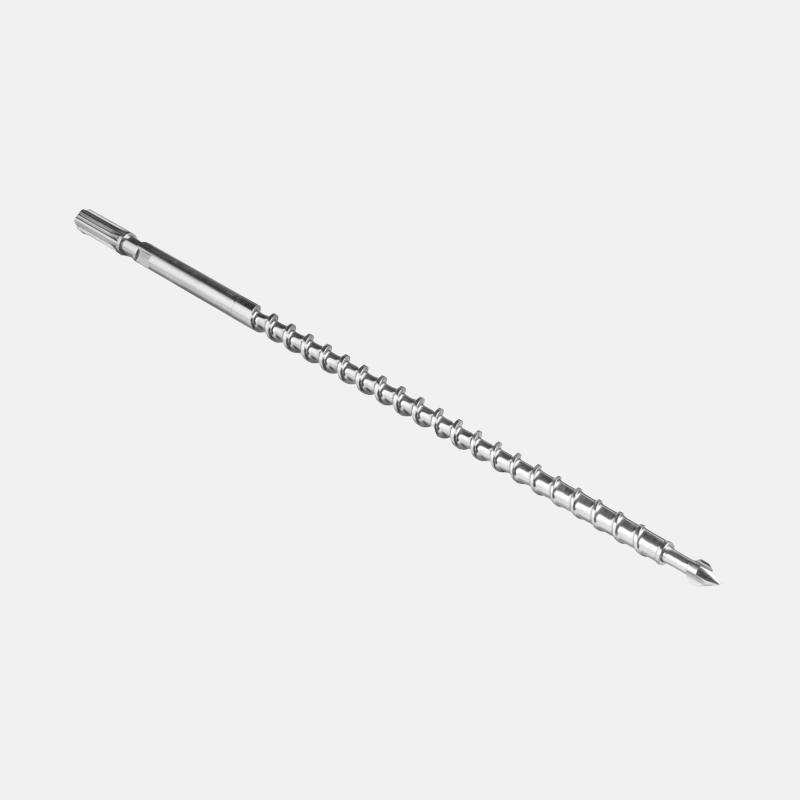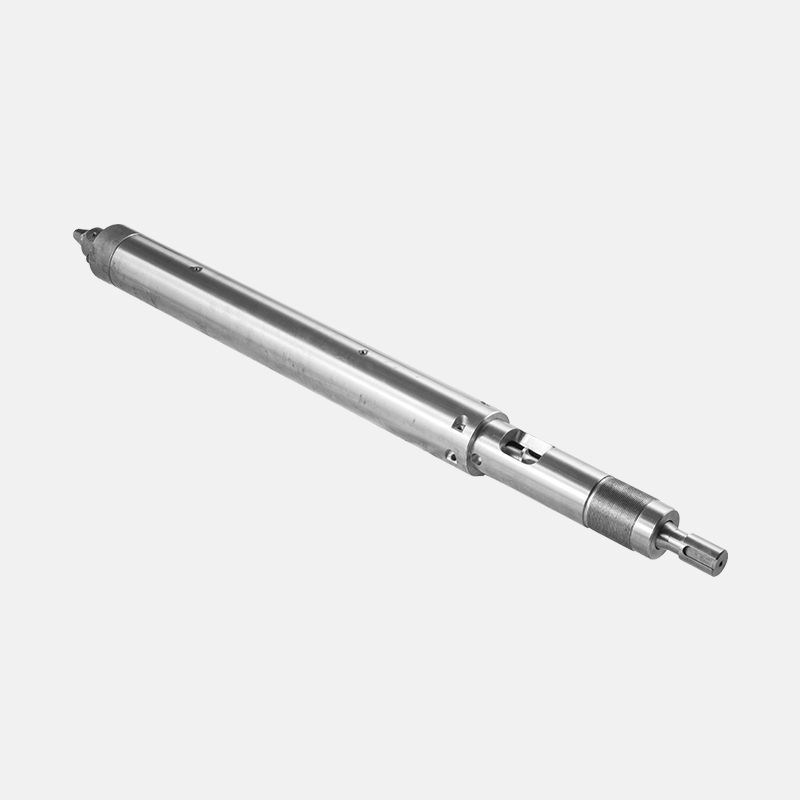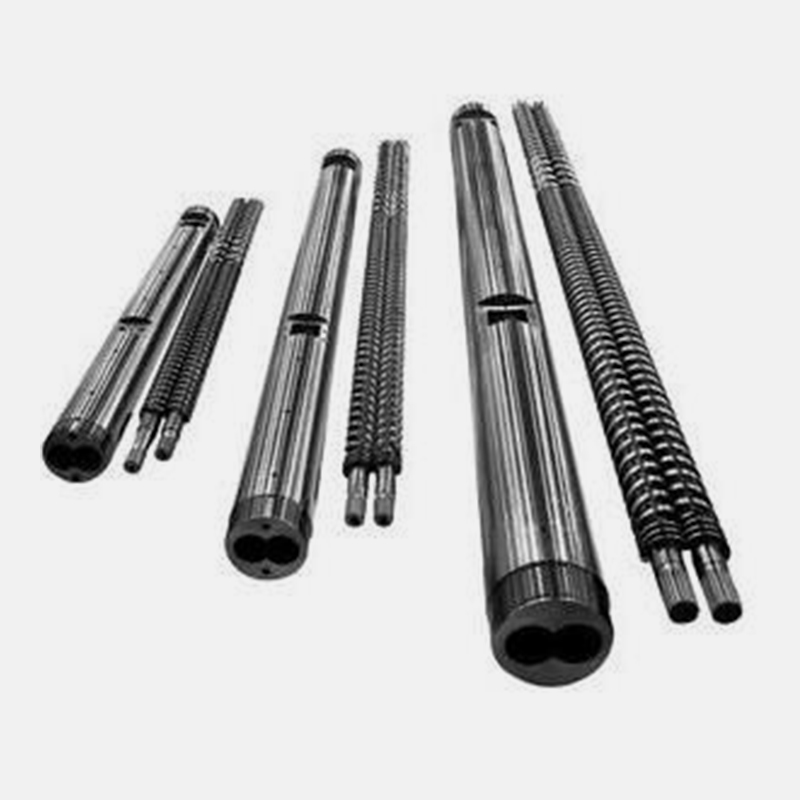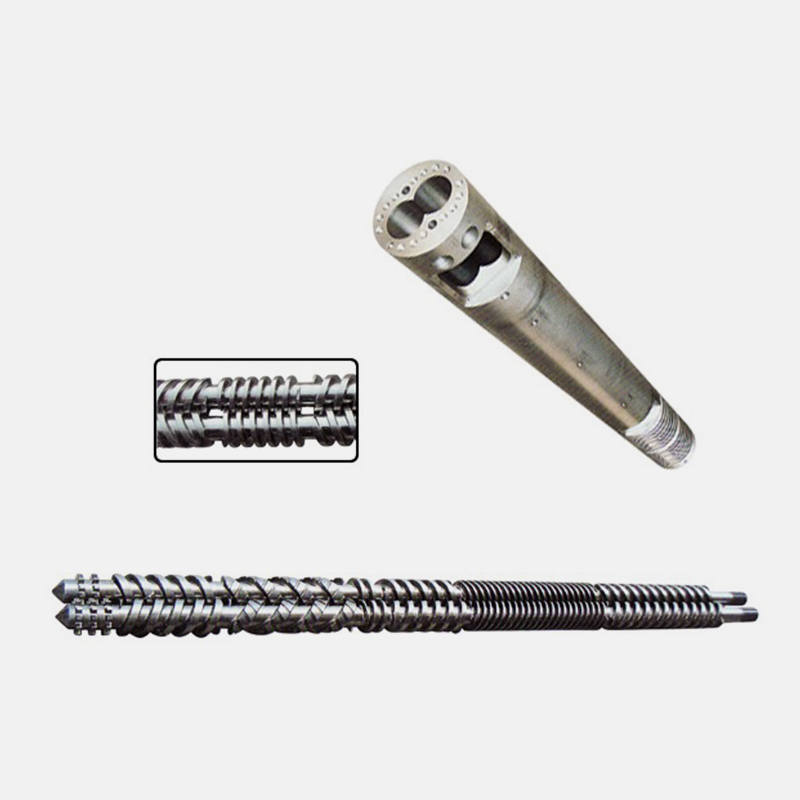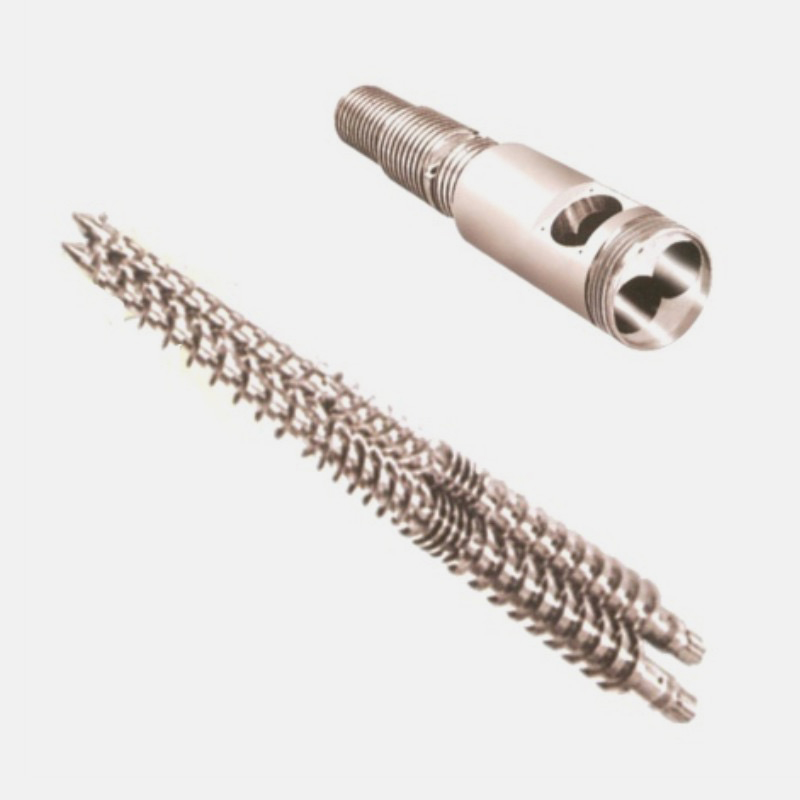The construction of
extruder screw barrels involves the selection of materials that can withstand the harsh conditions and demands of plastic extrusion processes. The choice of materials has a significant impact on the performance and durability of the screw barrel. Here are some commonly used materials and their effects:
1.Carbon Steel: Carbon steel is a cost-effective option for extruder screw barrels. It offers good strength and toughness, making it suitable for many applications. However, carbon steel is susceptible to corrosion, wear, and thermal degradation. To enhance its durability, it can be surface treated or coated with wear-resistant materials.
2.Alloy Steel: Alloy steels, such as nitrided or through-hardened steels, provide improved strength, wear resistance, and heat resistance compared to carbon steel. Nitriding is a surface treatment that increases the hardness and wear resistance of the material. Through-hardened steels have uniform hardness throughout the entire screw barrel. These materials are commonly used for extrusion of filled or abrasive materials.
3.Tool Steel: Tool steels, such as high-speed steels or powdered metallurgy steels, offer exceptional hardness, wear resistance, and toughness. They are suitable for demanding extrusion applications involving high temperatures, high pressures, and abrasive materials. Tool steels maintain their hardness even at elevated temperatures, reducing wear and extending the service life of the screw barrel.
4.Stainless Steel: Stainless steel is highly corrosion-resistant, making it suitable for processing corrosive materials or for applications where cleanliness and hygiene are crucial. It provides good mechanical properties and can withstand higher temperatures compared to carbon steel. However, stainless steel is generally softer than alloy or tool steels and may require additional surface treatments for wear resistance.
5.Bimetallic Construction: Bimetallic screw barrels combine different materials to optimize their performance. The base material provides structural strength, while the wear-resistant layer, typically made of materials like tungsten carbide or hard alloys, offers enhanced resistance to wear and corrosion. Bimetallic construction improves the durability and service life of the screw barrel in high-wear applications.
The choice of material depends on several factors, including the specific plastic material being processed, processing conditions (temperature, pressure, shear), and the expected service life of the screw barrel. It's important to select a material that balances performance, durability, and cost considerations. Manufacturers and industry experts can provide guidance on material selection based on specific application requirements.
Extruder screw barrel for granulation extruder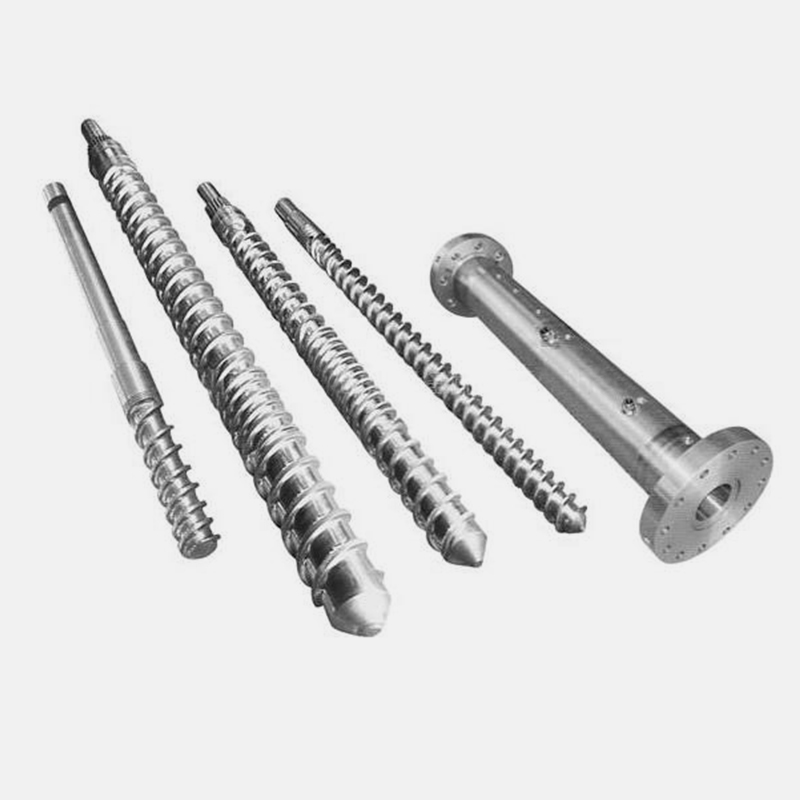
Processing Technics
Heat treatment
Quenching
Nitriding treatment
Bimetallic alloy welding for screw
Bimetallic alloy centrifugal casting for barrel
Hard-chrome electroplating
Main Alloy Materials
Ni-based alloy/Deloro alloy
Tungsten carbide/Wolfram carbide
NiCo-based alloy
Fe-based alloy
Co-based alloy

 English
English 简体中文
简体中文 España
España عربى
عربى

